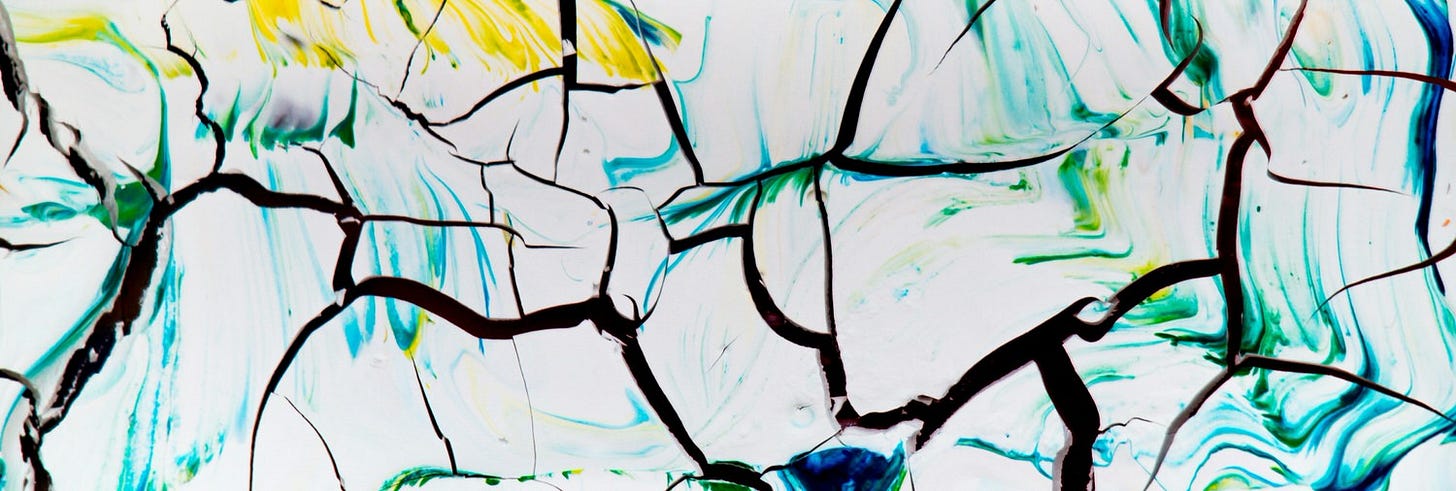From Burnout to Breakthrough
How therapeutic psychedelics, somatic intelligence and indigenous wisdom helped me break the cycle of burnout and rebuild my life
Disclaimer: This content discusses therapeutic psychedelic use within legal, supervised settings for addressing clinical burnout.
There’s a kind of exhaustion that seeps into your bones when the life you’ve built starts to fall apart. I’d experienced various forms of burnout in my life, but this time I didn’t just burn out from work—I burned out from being who I thought I needed to be in order to be loved.
After nearly two decades of building startups, raising children inside a struggling marriage, and trying to hold a vision of community together through the turbulence of the pandemic—something gave way. Not all at once. But the signs had been there: the overwork, the hero complex, the quiet neglect of my own body and spirit.
Eventually, the breakdown became undeniable. And so, I chose to pause. Not just from work—but from the identity I had spent so long performing.
While the Earth is Burning, So Are We
A recent study by Climate Critical confirms what many of us have felt in our bones: burnout is not an isolated personal failure — it's a systemic phenomenon, especially within the climate and environmental space. Surveying individuals across 108 climate-focused organizations, the study found that 96% of respondents scored high or very high on burnout. Symptoms ranged from exhaustion and cognitive fog to hopelessness and grief. Many reported feeling powerless in the face of escalating climate crises, unable to move the needle despite working tirelessly.
This burnout wasn’t just about long hours — it was about emotional dissonance. A disconnection between values and impact, between purpose and the pace of the work. Especially for Black, Indigenous, and People of Color, the emotional labor was compounded by systemic racism, underfunding, and performative organizational culture. The very people doing the deepest healing work for the planet are being burnt out in the process.
It was within this climate — both planetary and personal — that I began my own journey of unraveling and renewal.
Letting Go of The Story of Self
I still remember a turning point in my first mushroom journey. It felt like watching my entire identity disintegrate, slowly drifting down like a lantern descending in the night sky.
I saw the images that drove me: vast forests burning, floods sweeping through villages, children suffering from famine. A sense of urgency pulsed through me—the deep desire to help, to contribute, to save. This savior energy had been running my life for years.
Then, something shifted. As if the lights of my ego flickered out, and I sank into a deeper current—a place beneath time. In that space, everything was already whole. Nature had healed. Humanity had remembered its role as steward. The extractive age had passed, and the regenerative era had dawned.
I took what felt like my first full breath in years.
It was no longer up to me to fix the world. I wasn’t the hero. I was simply part of the symphony. A co-creator with life itself. I saw that this life wasn’t a mission—it was a dance. My only job was to find my part and stay in time.
The Neuroscience of Ego Dissolution
Before the ceremony, I had read about this phenomenon. It was one of the reasons I was so curious to try this as a therapeutic approach. Researchers at Imperial College London and Johns Hopkins describe how high doses of psilocybin deactivate the brain’s default mode network—the part responsible for constructing the story of the "self."
When this neural circuitry quiets down, our sense of separateness dissolves. We stop seeing ourselves as isolated individuals and begin to experience life as an interconnected field.
In that space:
The body relaxes.
The compulsive striving halts.
Even ordinary experiences become luminous.
Nature feels like kin, not background.
This wasn’t just a cognitive insight. It was a full-body remembrance: I am not separate from life—I am life, aware of itself.
Discovering Internal Family Systems (IFS)
Alongside my psychedelic work, I began exploring Internal Family Systems (IFS), a therapeutic model developed by Richard Schwartz. IFS views the psyche not as a monolith, but as a dynamic system of parts.
There’s no such thing as a bad part—only parts trying to protect us.
In my case, I met the part of me that believed I had to be exceptional to be loved. This was the startup founder, the overachiever, the savior. For years I had tried to exile this part, to suppress him. But IFS taught me to welcome him home.
I thanked him for getting me this far. I let him rest.
This practice of internal compassion created space for something deeper to emerge—what IFS calls the Self: a state of calm, curiosity, and connection that doesn’t need to prove anything.
Cultivating a Kinship Worldview
The final piece came from a different lineage entirely: the wisdom of Indigenous traditions.
Through ceremony, storytelling, and deep reading of Indigenous teachers, I began to understand a radically different way of seeing the world—a kinship worldview.
In this worldview:
We are not individuals—we are relationships.
We are not regenerating nature—we are nature regenerating itself.
Land is not property to be owned—it is ancestor, teacher, and beloved.
This shift wasn’t just intellectual. It began to reshape how I saw myself: not as a discrete unit chasing impact, but as a node in a vast web of life, responsible to the land, to my ancestors, and to those yet to come.
✍️ Practice Prompt
Try mapping your identity as a web of relations—land, family, mentors, dreams, losses. Notice where things feel out of balance. Choose one relationship to tend, to honor, or to repair this week.
Rebuilding a Self Rooted in the Sacred
When we integrate these three modalities—psychedelics, parts work, and kinship worldview—we begin to rewire our identity at the deepest level.
No longer defined by accumulation or performance, our self-worth becomes rooted in:
The quality of our relationships
The harmony we experience
The sacredness we allow to move through us
Tools like BJ Fogg’s Behavior Design and modern neuroscience give us practical systems to rebuild a life aligned with these values. By understanding dopamine loops, regulating our nervous system, and shifting from short-term gratification to long-term fulfillment, we can anchor these insights into action.
Conclusion
For much of my life, I believed I needed to be great to be loved. But the pressures of life cracked that story like a broken pot. This is where the light crept in…
Through psychedelics, I experienced myself beyond the illusion of separation. Through IFS, I learned to welcome every part of me with compassion. Through the kinship worldview, I discovered myself in the great web of life.
Burnout wasn’t the end—it was a portal. And what I found on the other side wasn’t just a new identity. It was a new way to relate. To the Earth. To the sacred. To my self.
And in that remembering, I finally discovered the freedom I’d been searching for all along: The freedom to love, to create and to enjoy life in all it’s fullness, through the ups and the downs, the highs and the lows.
If you’re in a transition point in life and are looking for a breakthrough, I’d love to hear from you. We’re curating an intimate retreat with a group of leaders from around the world in September as well as hosting a number of transformative experiences in nature later in the year.
Please do get in touch!










